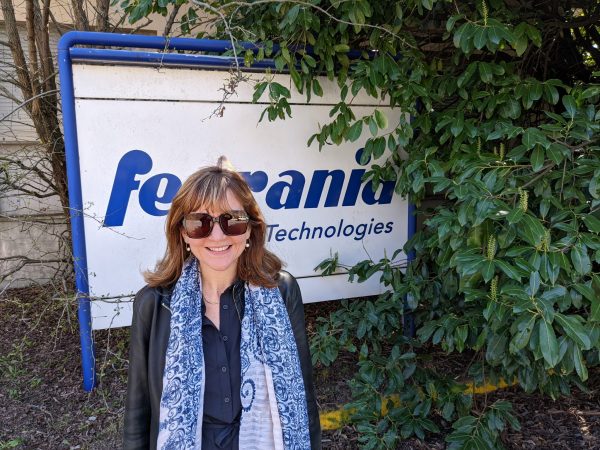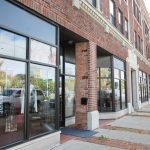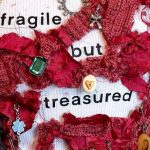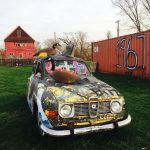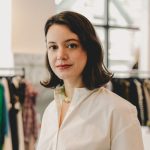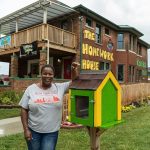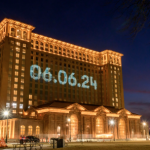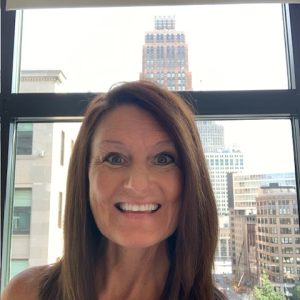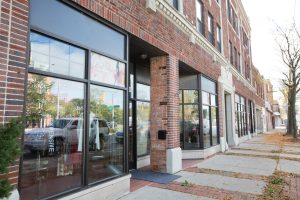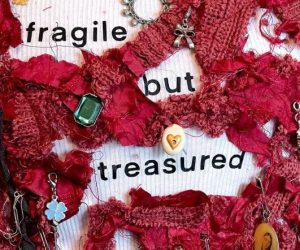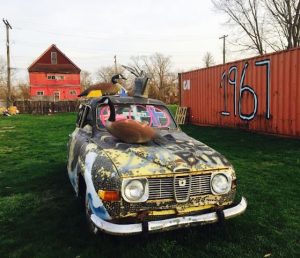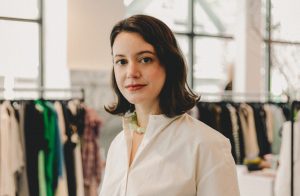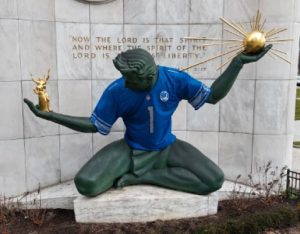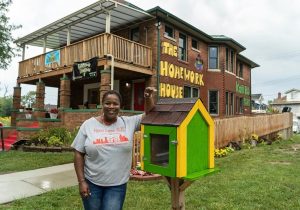DII had the unique pleasure of speaking with Elena Past, Professor of Italian at Wayne State University who has just completed a ten-month Rome Prize Fellowship from the American Academy in Italy.
Each spring, the Academy awards the Rome Prize and Italian Fellowship to a group of 30 artists and scholars, after an application and juried process. The winners are invited to Rome to pursue their work in an atmosphere conducive to intellectual and artistic freedom and interdisciplinary exchange.
The time at the Academy represents a chance for artists and scholars to spend significant time working in one of the oldest, most cosmopolitan cities in the world.
Here, Past shares her experience there, how her roots in Detroit impacted her time there, and what she intends to bring back to the city.
DII: How did you come to be a Rome Prize Recipient at the American Academy?
EP: I came to be aware of the American Academy as a student of Italian and Italy. Being granted a Rome Prize Fellowship is an honor and an amazing opportunity.
I applied when I was in grad school but didn’t get in. It’s been on my mind ever since.
The project I’m working on now really required physical time in Italy for research, so I applied again and this time I was granted a Fellowship. An individual can only be awarded the Rome Prize once, and looking back, the timing now is much better than if I’d gone years ago.
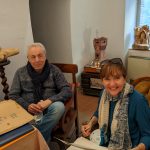
PAST MEETING WITH A FERRANIA CONTACT
DII: What project are you working on while in Italy?
EP: I’m writing a book on Italian cinema and the environmental impact of making films from the perspective of manufacturing analog film stock. My last book, Italian Ecocinema Beyond the Human, focused on Italian film productions made on location and their impact on the environment, but this one goes further back in the process to investigate the film manufacturing practices. I’m spending a good amount of time researching Ferrania, which is essentially Italy’s equivalent of the Kodak factory in the U.S. This factory manufactured film stock for some of the most iconic 20th century productions in Italian film history—movies starring Sofia Loren and Anna Magnani, movies directed by Vittorio De Sica, Pier Paolo Pasolini, Federico Fellini, movies that won Academy Awards.
The life of cinematic film stock, and Ferrania in particular, is a key for me to read the ecology of cinema. It is a way to recognize the web of lives and resources behind movie making. It’s a way to bring to light—and to honor—the work of “supporting actors”: the human laborers, techniques, and the materials, figures, and topics that are often sidelined in film analysis. It’s truly an untold story of Italian filmmaking.
DII: What goals are you looking to achieve while in Italy and where are you in that process?
EP: I’m making good progress on the book about Ferrania, and having been given the gift of time to do so is priceless. When I set out, I intended to utilize the ten-month time period to do most of the hands-on research in archives and begin the writing process and I’ve been able to do that.
The Academy’s mission is to give Fellows the time and environment to do what we each have set out to do. My fellowship ended in July, but I applied for a Fulbright program scholarship and was awarded that as well, so I will be in Italy working until September.
At the end of my ten months as a Rome Prize Fellow, the Academy had me complete an evaluation of my progress on the project and accomplishments throughout the year. That helped me to move on to the next steps in my process.
DII: Please describe your experience as a Rome Prize Fellow.
EP: In a word, it’s been magical. I might have been able to write the book in the U.S. but it would have been a completely different project. Here, I have face-to-face access to the individuals I need to interview. I can personally search the archives. I can sit down and have coffee with the people who worked in the factory, which is priceless. It has allowed me the opportunity to have meaningful and personal connections so I can see the project in new and different ways.
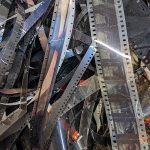
ANALOG FILM STOCK BEING DISCARDED IN AN ARCHIVE
Further, Rome is the city of cinema – it was called Hollywood on the Tiber in the 50s and 60s. So being here to research filmmaking… the whole city speaks to me. I’m living amongst filming locations, I’m meeting people from the world of production. I also see the waste left behind in the wake of film productions, and the way they can disrupt life. Experiencing all of this first-hand and being able to immerse myself in that has had a huge impact on my work.
Lastly, working within a community of people – artists, architects, designers, creative writers, and scholars – who are progressing their creative and scholarly projects has been a gift as well. Our group meals give us an opportunity to sit down and talk about our work and this has driven my thinking in a way that’s enriching beyond words.
DII: Has the experience been what you expected?
EP: Leading up to the experience, I was very purposeful in not developing expectations. I wanted to approach it with an open mind, and I think I succeeded in doing that. It has transformed the way I think about all kinds of things, not just my research.
DII: Have you encountered anything unexpected?
EP: The social fabric works differently in Italy. People are particularly attuned to community. When we arrived, after the terrifying experience Italy had early in the COVID pandemic, people were incredibly cautious and thoughtful about COVID and all the protocols that have come with it.
Although not unexpected, it was wonderful to be reminded of how hospitable Italians are. I encountered so much generosity as I conducted my research. People have gone above and beyond to be helpful, not simply answering questions but inviting me to lunch or sharing books and materials and stories they think may be of value.
DII: What are the impactful takeaways you’ll be able to bring back to Detroit and the students you teach here?
EP: When I applied for Fulbright, part of what I committed to is to bring back elements of my research to my community. I’m developing plans for a photo exhibit and film screening and will have the undergrads and graduate students at Wayne State curate and translate the project. I’m excited to collaborate with the students to do this and to invite the community to attend.
I also bring back a network of priceless contacts.
The Academy has a vibrant and active alumni network and a large sector of that is in the Detroit and Ann Arbor area. There is an event in September that will give me a chance to meet and be part of this group.
And finally, I want to bring back elements of the Italian perspective on experiencing time. Italy is home to the Slow Food movement, an international organization that resists what its founder refers to as the “tyranny of speed” of contemporary life. I want to hold on to the lessons I learned about time, and I think it will truly benefit me as a teacher and scholar to recall this willingness to take more time. Time for research and reading and conversation. Time to notice good things and unjust things. Day-to-day life in Italy unfolds in this unique way, especially in smaller towns, and Americans can benefit from being more mindful of experiencing time in this way. It’s vital to see how we can slow down to enjoy life, but philosophies of slowness also let us understand how problems – environmental problems in particular – don’t unfold overnight, and require long-term commitment to address.
DII: What do you think you were able to contribute – being from Detroit?
EP: My interest in industry and manufacturing and the pride that comes from making something important and well comes from my time in Detroit. Seeing that making something – even something creative like a film – involves labor gives value to our industrial past. It also awakens us to questions of social and environmental justice, because rather than experiencing media as something that is in the seemingly intangible “cloud” or out there on the “web,” we see how the media rely on material resources and human labor.
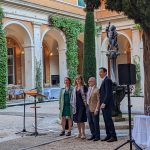
FINAL CEREMONY IN THE ACADEMY COURTYARD
Being immersed in a manufacturing environment like the one in Detroit offers a viewpoint of an ecosystem where everyone from the CEO to the line worker contributes important elements of success. This viewpoint is front-and-center in Detroit and was definitely part of the inspiration for this book.
DII: Did you encounter any interesting takeaways regarding other people’s thoughts/impressions of Detroit?
EP: I was within a community of artists largely from NY and definitely got a sense that Detroit has a reputation as a place full of vibrancy and creativity.
From the Italians I got curiosity. People are interested to hear what the city is like, and in some cases, they feel a sisterhood with Detroit. I know various artists in Turin who think that Detroit and their city share lots of similarities, via their histories of auto manufacturing.
I still encountered stereotypes too – cautionary tales of Detroit. I work to be the best ambassador of the city that I can, to temper stereotypes and nourish positive perspectives about the city that I love.
DII: What is the most valuable thing you will bring back to Detroit with you?
EP: The broadened perspective I got from testing ideas in a place where people challenge them and are curious. The encounters with all kinds of artists and designers and factory workers I connected with. This amazing diversity of people – I bring back a new perspective.
There is a book I read years ago called The Woman Warrior, by Maxine Hong Kingston. In it, a grandmother is passing a suitcase of memories to her granddaughter. I love this metaphor and I always think of it when I travel. Bringing home a suitcase of ideas, memories, and experiences; sharing them with others. These things will, I hope, make me a better and stronger teacher and part of the community.
As always, be sure to subscribe to our newsletter for regular updates on all things Detroit and more.





